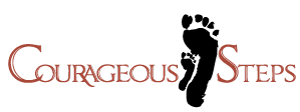DPLS 701: Organizational Theory
Expected Competencies
Systems and Structures Thinking:
Demonstrate integrated knowledge of organizational systems, processes, and the philosophical and theoretical underpinnings that inform organizational functioning.Critical Evaluation of Theories:
Develop the ability to differentiate among modern, symbolic, and postmodern perspectives in organization theory, using them to analyze and critique real-world organizational phenomena.Boundary Exploration and Reframing:
Investigate how organizations conceptualize and enact boundaries—including physical, social, and mental—and apply this to contemporary organizational challenges, particularly during crises.Application of Process Philosophy:
Utilize process theories and emergent thinking, such as those by Weick and Whitehead, to understand organizational adaptation and transformation during uncertain or volatile conditions.Transdisciplinary Integration:
Engage diverse organizational philosophies—including empiricism, pragmatism, hermeneutics, and systems theory—to develop a multidimensional view of leadership and organizations.
Achieved Competencies
Philosophical and Theoretical Literacy:
Through extensive engagement with foundational and emerging organizational theorists, developed nuanced understanding of both classical and contemporary approaches, including the writings of Hatch, Weick, Hernes, Tsoukas, and Chia.Boundary Theory and Crisis Response:
Analyzed the impact of COVID-19 on educational institutions using composite boundary theory, connecting theory to lived experience in remote schooling and work transitions.Sensemaking and Process Analysis:
Demonstrated application of process thinking in organizational analysis, drawing from verb-noun duality and systems under stress, particularly in times of social and systemic disruption.Application of Knowledge Management to Organizational Theory:
Developed a process-based argument for embedding storytelling and knowledge-sharing as essential tools for transformation within helping professions, particularly healthcare.
Applied Competencies
Organizational Crisis Analysis:
Wrote a reflective paper connecting Weick’s theories of organizing with the shift to online education during COVID-19, identifying how schools recreated boundaries and routines under crisis conditions.Knowledge Management in Practice:
Examined how knowledge management practices, particularly storytelling and organizational memory, can enhance service delivery and learning in the healthcare sector and beyond.Integration of Systems and Process Theory:
Engaged with readings from Hernes and Bakken to demonstrate how structure (noun) and emergence (verb) co-construct meaning and function within organizations navigating disequilibrium.Practical Systems Innovation:
Proposed new process structures and systems that could support working families and professional practitioners during remote or disrupted operations, grounded in theoretical frameworks.
Artifact Inclusions
1. Crisis Education and the Need for Organizational Theory
This paper applies organizational theory to the dramatic shifts in education during the COVID-19 pandemic. Through the lens of Weick, Hernes, and Giddens, it critiques how bureaucratic routines collapsed and reformed into new digital boundaries and expectations. The analysis draws on both academic sources and personal experience, including the author's own son’s transition to remote learning, providing a grounded and multidimensional exploration of how organizational theories manifest in real-time systemic change.
2. Knowledge Management in the Helping Professions
Co-authored with Francis Nsanga, this paper explores how process theory and knowledge management intersect to support organizational learning and transformation in helping professions, particularly healthcare. Using examples such as NICU parent advocacy, the PaTH Story Booth, and public health campaigns, the paper illustrates the critical role of storytelling in translating knowledge into systemic impact. Drawing on Nayak and Chia’s process philosophy and the work of Sehai, Vaill, and Siemens, it argues for an integrated, narrative-based approach to organizational change that honors lived experience as essential knowledge.
References
Amarendra, C. R. (2017). Knowledge Management in Agriculture and its methods. International Journal of Next Generation Library and Technologies.
Bakken, T., & Hernes, T. (2006). Organizing is Both a Verb and a Noun: Weick Meets Whitehead. Organization Studies, 27(11), 1599–1616.
Bader, C. (2020). Onboarding during a Pandemic: How Knowledge Management Can Help. The Knowledge Management Institute.
Giddens, A. (2004). In Hernes, T. (2006). Studying Composite Boundaries. Human Relations, 57(1), 9–29.
Hernes, T. (2004). Studying Composite Boundaries: A Framework of Analysis. Human Relations, 57(1), 9–29.
Hussain, I., Si, S., & Ahmed, A. (2010). Knowledge management for small and medium enterprises in developing countries. Journal of Knowledge Management Practice, 11(2).
Little, M. (2020). Measuring the Success of Knowledge Management Digital Transformation. The Knowledge Management Institute.
Nayak, A., & Chia, R. (2011). Thinking becoming and emergence: process philosophy and organization studies. Philosophy and Organization Theory Research in the Sociology of Organizations, 32, 281–309.
Sehai, E., et al. (2013). Enhanced Knowledge Management; Knowledge Centres for Extension Communication and Agriculture Development in Ethiopia. Information Sciences Reference.
Siemens, G. (2005). Cognitivism: A Learning Theory for the Digital Age. www.elearnspace.org.
Tsoukas, H., & Chia, R. (2011). Introduction: Why philosophy matters to organization theory. Philosophy and Organization Theory, 1–21.
Vaill, P. B. (1996). Learning as a Way of Being. San Francisco, CA: Jossey-Bass.
Keywords
Organizational boundaries, sensemaking, knowledge management, healthcare storytelling, NICU advocacy, process theory, remote learning, COVID-19 disruption, system transformation, learning organizations, digital education, patient-centered care, narrative leadership, organizational memory, organizational resilience, organizational theory.

